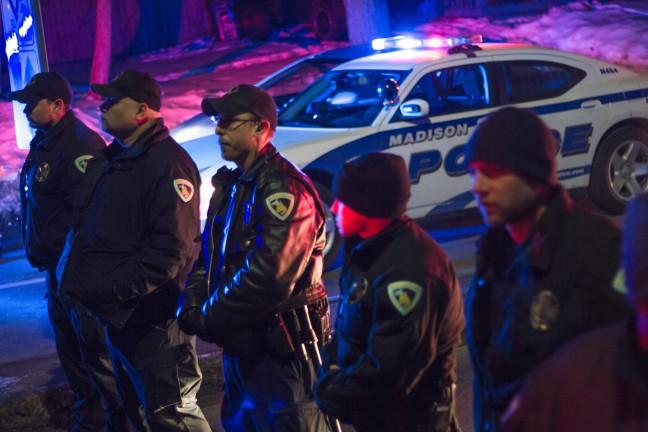A bill currently being circulated in the Capitol would set standards for law enforcement’s use of body cameras to ensure police accountability, but some have expressed concerns it could violate privacy.
Sen. Chris Larson, D-Milwaukee, co-author of the bill, said in a statement the legislation is in response to public outcry over police shootings across the country.
“All Wisconsinites deserve to live in a safe community,” Larson said in the statement. “Tragedies that have occurred across the nation as well as in our own neighborhoods have ignited an interest for law enforcement officers to be equipped with body cameras — both by law enforcement themselves and the public.”
According to the bill, body cameras must be active at all times when officers are responding to a situation, and officers are required to inform individuals that the event is being recorded to ensure the privacy interests of the victim are preserved. Body camera usage without civilian consent in school, hospitals, and non-emergency situations is strictly prohibited under the bill.
Madison Police Department does not currently supply its officers with body cameras, but Joel DeSpain, MPD spokesperson, said he expects MPD will use body cameras in the future.
“The mayor’s office [has] been looking at whether there should be more body cameras in the city,” DeSpain said. “So what [MPD Chief Mike Koval] said is it’s not a matter of if, but when it’s going to happen,” DeSpain said. “Then again, it’s up to the city leaders to determine when that’s going to be.”
Videos taken with body cameras will have to be held for a minimum of 42 months for public records requests. Law enforcement agencies would also be required to make all of their body camera policies publicly available.
All MPD videos are currently subject to open records requests, DeSpain said.
But Robert Drechsel, University of Wisconsin journalism and mass communications professor, said the availability of police body camera videos under open records could violate the privacy of subjects of police investigations.
“The privacy issue really gets magnified when you start talking about who gets availability to the video for the body cameras,” Drechsel said.
Drechsel said the use of body cams would create an excessive amount of surveillance, as seen with drones.
Taylor said in a statement the standards the bill would put in place would protect public interests.
“This bill doesn’t mandate that any law enforcement agency use body cameras, only that when they do, privacy interests of victims and the public’s interest in law enforcement accountability is protected,” Taylor said in the statement. “By establishing statewide standards for the use of body cameras, we are ensuring accountability, consistency and transparency.”
There is currently no bipartisan support for the bill, according to Lacy Fox, Larson’s spokesperson.


